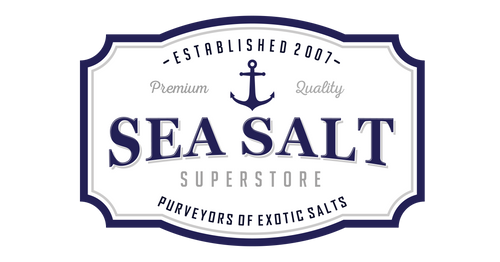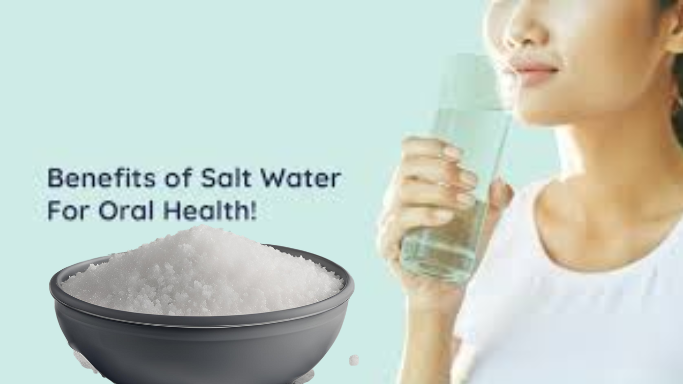A salt rinse is a diluted solution of salt and warm water used as a mouthwash or gargle. It's been a popular home remedy for centuries, often recommended by dentists and healthcare professionals for its ability to promote oral hygiene and alleviate various oral health issues. The practice is simple, inexpensive, and can be done using just common household ingredients.
But what makes salt rinses so effective? The benefits are largely attributed to salt's natural healing properties and its ability to maintain oral hygiene. Here’s a closer look at how salt rinses work and why they are an excellent addition to your oral care routine.
1. Reduces Bacteria and Fights Infections
Salt is a natural antimicrobial agent, meaning it can help kill harmful bacteria and microbes in the mouth. When dissolved in warm water, the salt creates a hypertonic solution, which draws water out of bacterial cells, effectively dehydrating and killing the bacteria. This helps to reduce the overall bacterial load in your mouth, which is important for preventing issues like gum disease, tooth decay, and bad breath.
For those with oral infections, such as a canker sore, gum infection, or after dental procedures like tooth extractions, a salt rinse can help reduce swelling and prevent infection from worsening by controlling bacteria levels in the mouth.
2. Soothes Sore Gums and Mouth Irritations
Salt rinses are known for their ability to soothe sore gums. If you have irritated or inflamed gums due to braces, new dentures, or poor oral hygiene, a salt rinse can help provide relief. The salt acts as a natural anti-inflammatory, reducing swelling and pain, making it an effective remedy for conditions like gingivitis or after dental cleanings.
For individuals who suffer from mouth ulcers or canker sores, a warm salt rinse can also alleviate discomfort and speed up healing. The rinse creates an environment in which the mouth’s soft tissues can heal more rapidly, reducing the pain associated with these conditions.
3. Promotes Healing After Oral Surgeries or Procedures
Following dental procedures like tooth extractions, implants, or gum surgery, salt rinses are often recommended by dentists as part of the recovery process. Salt has natural healing properties, and it helps clean the mouth while preventing infection, especially when the gums or tissues are healing after surgery.
The saline solution helps reduce inflammation, soothes pain, and prevents harmful bacteria from entering the wound, which can lead to complications like dry socket or infection.
4. Improves Oral Hygiene and Freshens Breath
A salt rinse can also work as a simple, natural mouthwash to freshen breath and promote overall oral hygiene. By reducing the bacteria in your mouth, it helps to prevent the growth of odor-causing bacteria, leaving your mouth feeling cleaner and your breath fresher.
While a salt rinse isn’t a substitute for regular brushing and flossing, it can be a great supplementary step in maintaining oral health. It's especially helpful when brushing isn't possible, such as during travel or after meals when you may not have access to a toothbrush.
5. Helps With Dry Mouth (Xerostomia)
Some individuals experience dry mouth (also known as xerostomia), which can lead to discomfort, difficulty swallowing, and an increased risk of cavities. A salt rinse can help temporarily alleviate dry mouth by stimulating saliva production. The solution helps to balance moisture levels in the mouth, reducing discomfort and promoting a healthier oral environment.
6. Natural and Safe Alternative
One of the biggest advantages of using a salt rinse is that it’s a completely natural and safe remedy. Unlike many commercial mouthwashes, which can contain alcohol or chemicals that may irritate the mouth or cause dryness, a salt rinse is gentle, non-toxic, and generally safe for most people, including those with sensitive gums or mouths.
It’s also cost-effective and easy to prepare at home, using just a teaspoon of salt and warm water. For people looking for a more holistic or natural approach to oral care, salt rinses offer a simple solution with no additives or preservatives.
How to Make a Salt Rinse
Making a salt rinse is easy, and the process only takes a few minutes. Here’s how to prepare and use a salt rinse effectively:
Ingredients:
- 1/2 to 1 teaspoon of salt (preferably sea salt or Himalayan salt for its mineral content)
- 1 cup of warm water (approximately 8 ounces)
Instructions:
-
Dissolve the salt: In a cup of warm water, dissolve the salt completely. It’s important that the water is warm, as hot water can be irritating to the tissues in your mouth, and cold water may not dissolve the salt as effectively.
-
Swish and gargle: Take a small sip of the saltwater and swish it around your mouth for about 30 seconds to 1 minute. Focus on swishing the solution around your gums and the affected areas, if you have mouth sores or irritated gums. You can also gargle with the solution to soothe your throat or fight an infection.
-
Spit out: After swishing and gargling, spit the solution out. Avoid swallowing the salt rinse, as too much salt in your system can lead to dehydration.
-
Repeat: You can repeat the salt rinse up to 2–3 times a day, especially after meals, or as recommended by your dentist.
Precautions and Considerations
While salt rinses are generally safe, it’s important to use them in moderation. Using a salt rinse too frequently or with too much salt can cause irritation or discomfort in your mouth. If you have high blood pressure or kidney problems, you should consult with your doctor before using salt rinses, as too much salt intake could exacerbate these conditions.
Additionally, a salt rinse should not be relied upon as a replacement for regular brushing and flossing. It's most effective when used as a complementary practice to your oral care routine, which should include brushing with fluoride toothpaste twice daily, flossing, and regular dental checkups.
Conclusion
A salt rinse is a simple, natural, and effective way to maintain good oral health. From reducing bacteria and fighting infections to soothing sore gums and improving overall oral hygiene, the benefits of salt rinses are numerous. With just a teaspoon of salt and a cup of warm water, you can create a powerful oral health remedy that is gentle on the mouth, affordable, and easy to incorporate into your daily routine. Whether you’re looking to improve your oral hygiene, recover from oral surgery, or relieve discomfort from mouth sores, a salt rinse is a beneficial tool to have in your oral care arsenal.




